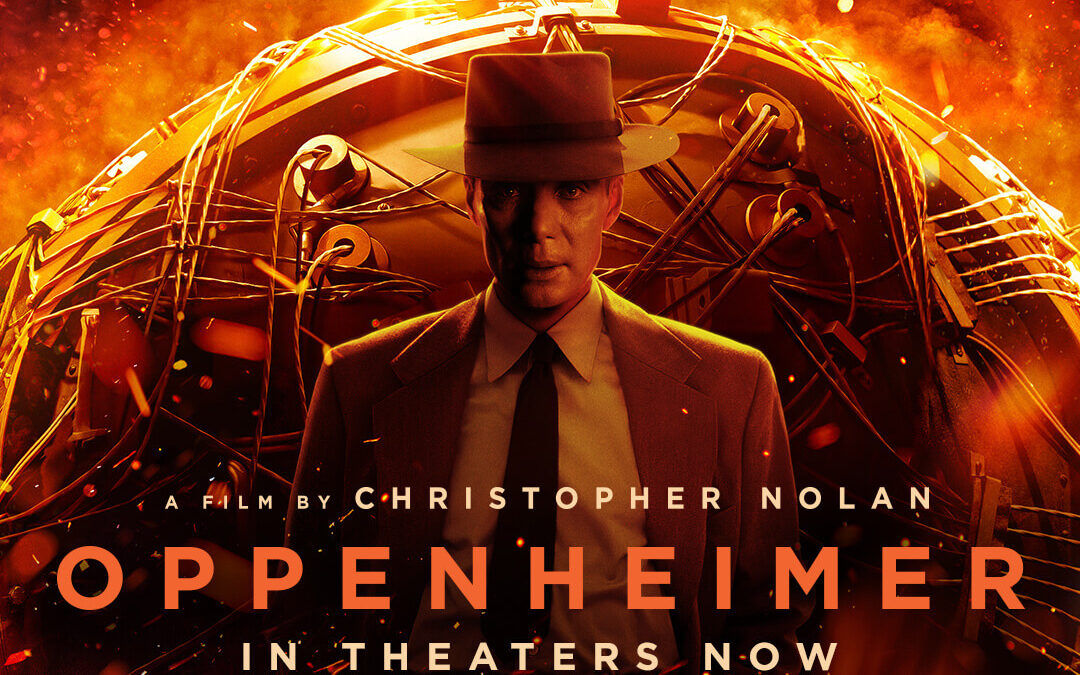Film Review: Oppenheimer!
I thought I would really like the movie 'Oppenheimer'. A rich source of talent participated in the film: the famous director and writer Christopher Nolan, the usual ensemble of actors – including Cillian Murphy, Emily Blunt, Matt Damon and Robert Downey Jr. 'Oppenheimer' was one of the films that brought in the most money last year - around a billion dollars, which put this film in third place, behind 'Barbie' and 'The Super Mario Bros. Movie'. The film is based on a book that Nolan read about Robert J. Oppenheimer, called 'American Prometheus'. Nolan studied Oppenheimer in depth and was deeply moved by his story.
“What I wanted to do was to put the audience into the mind and experience of the person who sat at the center of the biggest transition in history. J. Robert Oppenheimer is the most important person who ever lived. He shaped the world we live in, be it good or bad,” Nolan said, explaining what he had in mind in the creative process.
Undoubtedly, Oppenheimer was an important person, who was the director of the Los Alamos Laboratory during the development of the atomic bomb from 1943-1945, and is called "the father of the atomic bomb". Undoubtedly, as Oppenheimer himself said,, there was 'blood on his hands' when atomic bombs were dropped on Hiroshima and Nagasaki in Japan.
The Movie
At the beginning of the film, you see the title: "Prometheus stole from the gods and gave it to mankind. As a result, he was tied to a rock and tortured for eternity." This passage was taken from Greek mythology, and is a premonition of what would happen in Japan, as a consequence of the work done by Oppenheimer and his team in Los Alamos.
The advertising suggests that it is a film about Oppenheimer and his role in the development of the atomic bomb at Los Alamos. Although we get glimpses of that story from time to time – mainly when they detonate the first atomic bomb in New Mexico in 1945, the emphasis is not strongly on the story of the bomb. Los Alamos is the backdrop in which the film's three main stories are told: Oppenheimer's romantic life, the attempts of Oppenheimer's enemies to revoke his security clearance after the war, and the United States Congressional hearings about Lewis Strauss's candidacy for the post of presidential joint secretary, and the impact that the connection between Strauss and Oppenheimer played on that process. I have to say that I was lured in expecting one thing but was given another, which I was not very interested in.
Because there were three stories told in the film, and they were told to us like a jigsaw puzzle, in terms of story, place and time, I suffered a sort of whiplash, and so I was sometimes confused about what was going on. Tempo and comprehensibility were consequently also lost. In my opinion, it would be much better to tell one story – the story of Oppenheimer and the development of the atomic bomb, and tell it in chronological order. Half the time, I had no clue what year it was, or who people were either. The film featured famous scientists whose identity we didn't know until later.
Conclusion
In my opinion, 'Oppenheimer' is not a great film but there is the occasional gem. It is a movie for movie makers, but it fails with the ordinary person. In addition to everything mentioned above, there was not enough respect or attention given to the thousands of innocent civilians who were vaporized by the bombs. Of course, many in Japan are still suffering from those bombs. All of those, both living and dead, are a big part of the story. Any film purporting to be about Oppenheimer, which contains only a passing reference to the poor people who were subjected to terrible, deadly violence, is a film short on truth.





